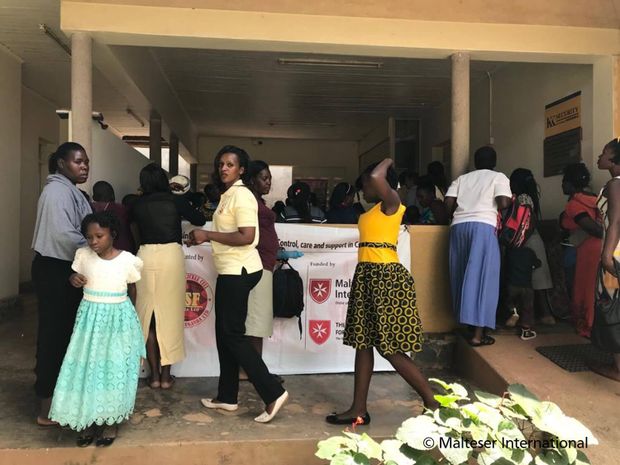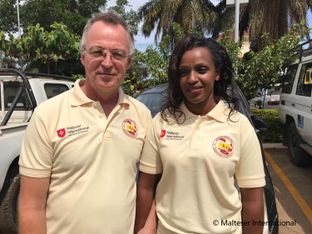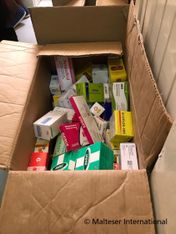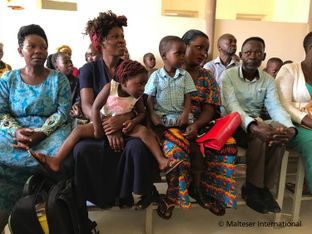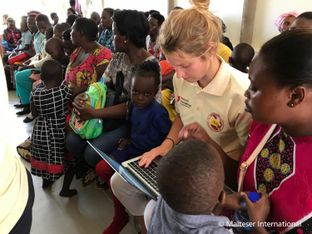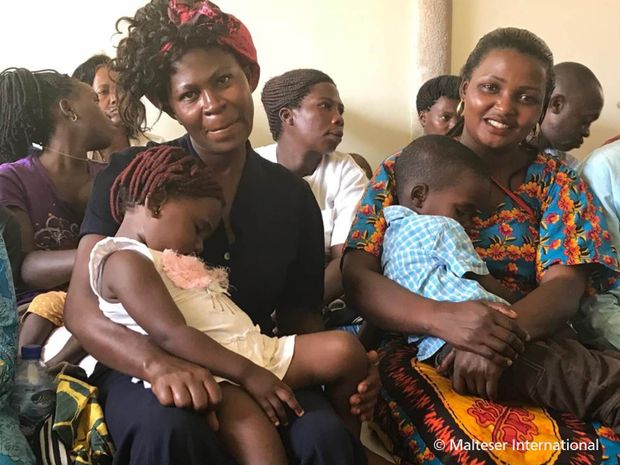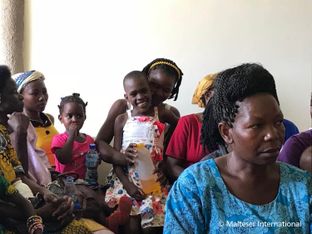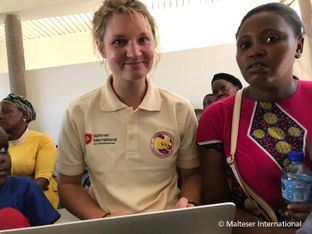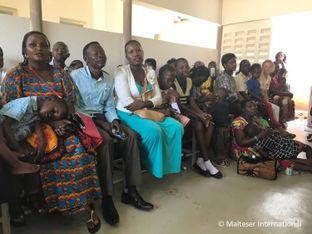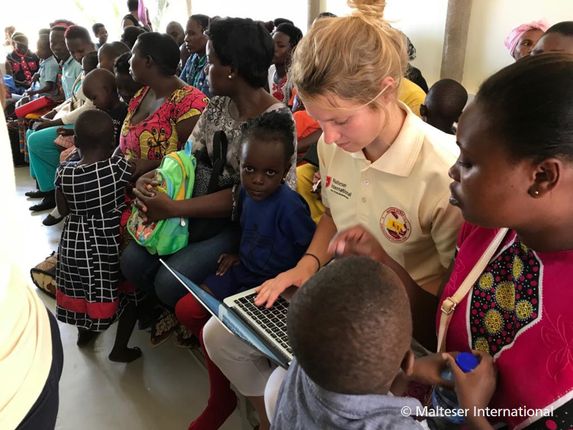
This project has been completed.
Uganda: Quality of Life for Sickle Cell Patients
Sickle cell disease is the most common genetic disease that is particularly prevalent in the sub-Saharan region. 20 percent of Ugandans have this genetic trait. Upon the onset of the disease, the life expectancy and quality of life of those affected are considerably reduced.
The Machnik Sickle Cell Foundation (MSF) tests Ugandans for the sickle cell genetic defect, advises and treats affected persons and patients and supports them in society with educational campaigns. We support MSF’s valuable work with two mobile outreach clinics.
Sickle cell disease is a genetic disease that affects the red blood cells. Due to their sickle cell-like formation, the red blood cells cannot efficiently transport oxygen into the somatic cells. 20 percent of the Ugandan population have the genetic trait of sickle cell disease.
In Uganda, 20,000 babies are born each year with the genetic defect. The sickle cell disease is not curable. However, if it is detected early, the symptoms can be reduced. Without treatment, children die before the age of 5.
People with sickle cell disease often suffer from many complications, such as anaemia, life-threatening bacterial infections, severe physical pain, strokes and general organ failure. Symptoms vary from person to person. The disease significantly affects sufferers’ education, work and psychosocial development.
The main drug for the treatment of sickle cell disease is not on the list of the most important drugs. The medication is often not available. Many Ugandans cannot afford the high costs of treatment.
In addition, stigma and myths about sickle cell disease are widespread in Uganda. Misconceptions are widespread not only among the population but also among health workers. Stigmatisation isolates sickle-cell patients and their families from society. In many cases, women with sick children are abandoned by their husbands, which complicates their financial situation and, by extension, access to treatment.
Blood tests are the most effective way to monitor the disease and reduce related complications.
- Reduce the mortality and morbidity of people in Central Uganda who have been sick with sickle cell anaemia
- Sensitization about the disease
To improve the quality of life of people with sickle cell disease and reduce deaths, we are investing in early detection of the disease and raising public awareness.
We support our partner Machnik Sickle Cell Foundation (MSF) in the operation of two mobile outreach clinics. They can be used to test 50 people per month for sickle cell disease. Even hard-to-reach people living on the islands of Lake Victoria can take part in the tests. People who have been tested positive are referred to the hospitals for further treatment. In this way we save costs for patients and hospitals and strengthen patient care.
With the mobile outreach clinics, we raise awareness among the population and reduce stigmatisation. This is important to improve awareness of treatment options and minimization of symptoms.
Through our activities we improve the quality of life and life expectancy of people with sickle cell disease and their families.
- Operation of 2 outreach clinics
- Early intervention mechanisms through tests
- Advising the tested persons
- Referring patients to a referral hospital for treatment
- Educating and raising awareness among health personnel
Machnik Sickle Cell Foundation: With a strong partner we are fighting against sickle cell disease
Country info
Capital: Kampala
Area: 241.040 km²
Population: approx. 47.8 million
Project data
Project duration: 01 January 2018 - 31 December 2018
Donor: Global Fund of Forgotten People
Partner: Machnik Sickle Cell Foundation
Contact: Alexandra Kaiser, alexandra.kaiser(at)malteser-international.org
Last updated: October 2018

